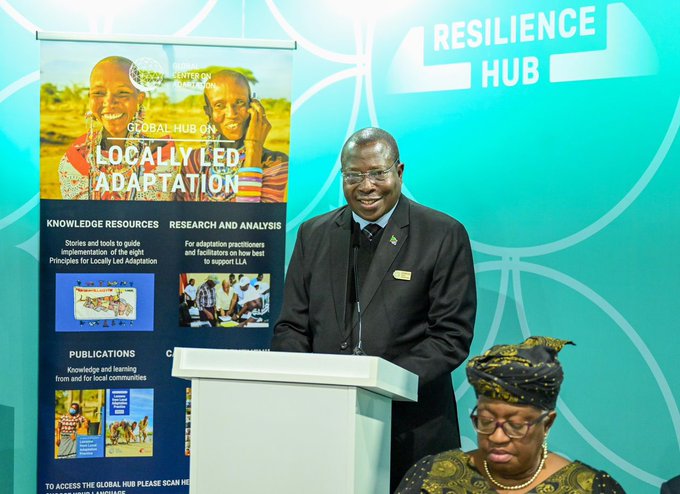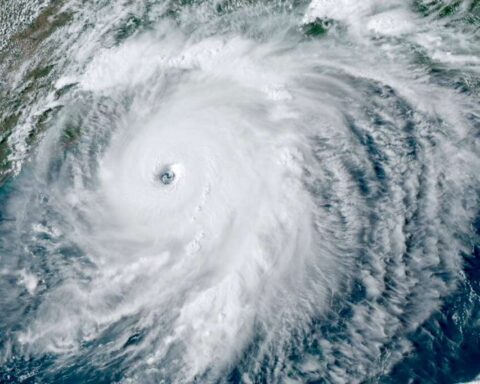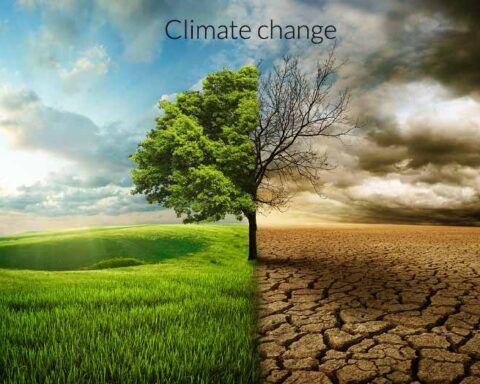Tanzania is set to make a bold entry at the 29th United Nations Climate Change Conference (COP29) with a proposal of nine climate-resilient projects valued at USD 1.433 billion, equivalent to around TZS 4 trillion.
The project proposals reflect Tanzania’s strong commitment to addressing climate change, with projects designed to enhance resilience, mitigate environmental impact, and support sustainable development across the nation.
The conference, taking place in Baku, Azerbaijan, brings together leaders, policymakers, scientists, and climate experts from around the world.
Tanzania’s delegation is led by Vice President Dr. Philip Mpango, who represents President Dr. Samia Suluhu Hassan.
Dr. Mpango’s participation underscores Tanzania’s dedication to collaborating with the global community to meet climate goals outlined under the Paris Agreement, particularly in limiting global warming through national and international actions.
The nine projects Tanzania plans to present reflect the priorities laid out in the country’s National Climate Change Strategy.
They aim to strengthen the resilience of communities and ecosystems facing climate impacts, promote renewable energy, protect natural resources, and enhance sustainable agricultural practices.
Each project is meticulously designed to align with Tanzania’s broader development goals, fostering sustainable economic growth while addressing climate challenges.
Also Read: BRICS Proposes Crypto Platform for Emerging Markets Investment
The proposed projects include renewable energy initiatives focused on expanding solar and wind energy infrastructure to reduce dependence on fossil fuels, sustainable agriculture programs supporting climate-smart practices to improve food security and reduce greenhouse gas emissions, forest conservation efforts to preserve biodiversity and protect forests, and water management and irrigation systems to ensure water conservation, particularly in drought-prone areas.
COP29 provides an essential forum for nations to share ideas, resources, and innovative solutions in the fight against climate change. As delegates from across the globe convene, Tanzania is poised to advocate for climate finance and technology transfer to support its proposed projects.
Additionally, the conference’s agenda this year will feature in-depth discussions on strengthening international commitments and consensus-building, with the aim of advancing tangible actions that can protect ecosystems and support vulnerable communities worldwide.
At the Tanzanian pavilion, delegates and visitors can learn about the country’s extensive efforts in climate adaptation and mitigation. The pavilion highlights past successes and ongoing initiatives in renewable energy, climate-resilient infrastructure, and policies aimed at safeguarding natural resources. Through interactive exhibits, Tanzania showcases the progress of its national climate plans and the positive impact of partnerships with organizations such as the United Nations, the African Union, and various development agencies.
Tanzania’s active engagement at COP29 also involves seeking partnerships with international donors, private investors, and development agencies.
By presenting a strong proposal backed by evidence-based strategies, Tanzania hopes to attract the financial and technical support needed to implement these projects effectively.
The country recognizes that partnerships and funding are crucial to advancing climate goals, particularly in the face of challenges such as limited resources, increasing climate variability, and the need for climate adaptation.
The Tanzanian government is optimistic that COP29 will open new doors for collaboration and enable Tanzania to lead as a model in climate resilience within Africa.
Dr. Mpango’s presence symbolizes a call to action, urging developed nations to support the Global South’s climate initiatives and promote sustainable development pathways that benefit communities worldwide.
As the conference progresses, Tanzania’s contributions will remain under the spotlight, with hopes that these efforts will strengthen global solidarity and foster the impactful climate action needed to protect future generations.





Thanks for the post, is there any way I can receive an alert email whenever you make a new update?
Utterly composed content, regards for information. “You can do very little with faith, but you can do nothing without it.” by Samuel Butler.
I’m not that much of a online reader to be honest but your blogs really nice, keep it up! I’ll go ahead and bookmark your website to come back in the future. Many thanks
After study a few of the blog posts on your website now, and I truly like your way of blogging. I bookmarked it to my bookmark website list and will be checking back soon. Pls check out my web site as well and let me know what you think.
I love your blog.. very nice colors & theme. Did you create this website yourself? Plz reply back as I’m looking to create my own blog and would like to know wheere u got this from. thanks
Howdy would you mind stating which blog platform you’re working with? I’m going to start my own blog soon but I’m having a tough time selecting between BlogEngine/Wordpress/B2evolution and Drupal. The reason I ask is because your design seems different then most blogs and I’m looking for something unique. P.S My apologies for being off-topic but I had to ask!
What¦s Taking place i’m new to this, I stumbled upon this I’ve found It absolutely useful and it has aided me out loads. I am hoping to contribute & help other users like its aided me. Good job.
Admiring the commitment you put into your website and in depth information you offer. It’s great to come across a blog every once in a while that isn’t the same unwanted rehashed information. Excellent read! I’ve bookmarked your site and I’m adding your RSS feeds to my Google account.
I am impressed with this web site, real I am a fan.
Woh I enjoy your content, saved to fav! .
Unquestionably believe that which you said. Your favorite justification seemed to be on the internet the simplest thing to be aware of. I say to you, I certainly get irked while people consider worries that they just do not know about. You managed to hit the nail upon the top and defined out the whole thing without having side-effects , people could take a signal. Will probably be back to get more. Thanks
Awesome site you have here but I was wondering if you knew of any discussion boards that cover the same topics talked about here? I’d really like to be a part of group where I can get opinions from other knowledgeable individuals that share the same interest. If you have any suggestions, please let me know. Many thanks!